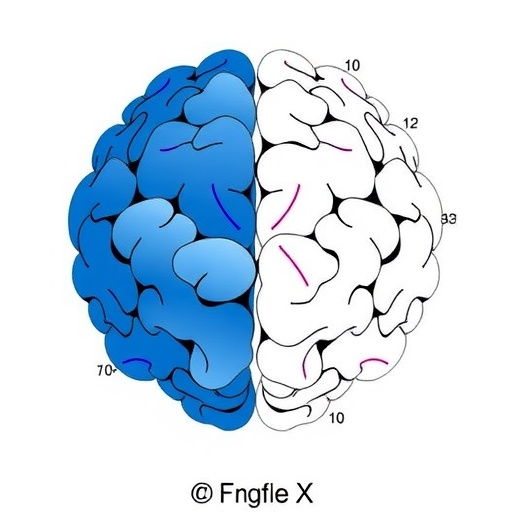Recent advancements in psychological assessment methodologies have sparked renewed interest in understanding cognitive functioning in individuals with Fragile X Syndrome (FXS). The original study by McKinney et al. delves into a critical investigation of the discrepancies between abbreviated and full-scale IQ assessments as per the Stanford-Binet test, revealing nuanced variations across developmental stages. Such insights are pivotal, given that FXS is recognized as the most common hereditary form of intellectual disability.
In their exploratory study, the researchers emphasize the importance of using both abbreviated and full-scale assessments to gain a comprehensive picture of an individual’s cognitive profile. This dual approach allows for a deeper understanding of how cognitive abilities manifest differently at various developmental milestones. The researchers have articulated that the traditional methodology might overlook specific developmental trajectories that are crucial for a complete understanding of FXS.
One of the distinguishing features of the Stanford-Binet assessment is its ability to provide a full-scale IQ estimate, which aggregates various cognitive domains. However, the abbreviated version of the test is often favored in clinical settings due to its time efficiency. McKinney and colleagues demonstrate the potential pitfalls of solely relying on abbreviated assessments, which may not adequately encapsulate an individual’s full cognitive potential or the unique challenges posed by FXS.
As the study unfolds, it becomes apparent that individuals with Fragile X Syndrome display a distinctive pattern of cognitive strengths and weaknesses. The researchers argue that these patterns frequently diverge when measured through abbreviated assessments versus full-scale evaluations. This divergence emphasizes the necessity for clinicians and educators to be aware of the limitations inherent in abbreviated tests, especially when making critical decisions regarding treatment and educational support.
Furthermore, the research highlights that the differences between assessment results might be exacerbated at different ages. It appears that younger individuals with FXS show marked differences in scores between abbreviated and full-scale measures, which tends to become less pronounced as they age. This evolving nature of cognitive assessment underlines the need for ongoing evaluation rather than static assessment methodologies.
McKinney et al. also challenge preconceived notions about the uniformity of cognitive impairments associated with FXS. They suggest that cognitive profiles are multifaceted and may vary significantly from one individual to another, thus necessitating a personalized approach to assessment and intervention. This personalized perspective is crucial in fostering more effective support systems for individuals with FXS and their families.
Additionally, the research invokes discussions around the implications of these findings for educational strategies and therapeutic interventions. The discrepancies unveiled by McKinney and his team may necessitate tailored educational plans that sufficiently accommodate the cognitive profile of children with FXS, rather than employing a one-size-fits-all approach.
Social interactions and emotional functioning are areas that are equally vital to consider in the context of Fragile X Syndrome. The interplay between cognitive assessments and real-world functioning can often lead to substantial variations in how individuals experience and navigate their social environments. McKinney’s research suggests that these social-emotional aspects should be integrated into assessment frameworks to provide a more holistic understanding of the individual.
Another critical aspect of the findings relates to the potential for identification of strengths alongside challenges in cognitive functioning. In highlighting cognitive capabilities, clinicians might foster a better understanding of what supports can be put in place to leverage these strengths. This strength-based approach can enhance resilience and self-advocacy in individuals with FXS.
As a broader takeaway, the study by McKinney and colleagues serves as a call to action for researchers, clinicians, and educators to rethink the methodologies employed in assessing cognitive abilities in specialized populations. The differences in evaluation might not merely reflect variations in IQ but also a deeper understanding of developmental psychology and individual circumstances.
In conclusion, the pivotal study illuminates the critical need for multidimensional evaluation frameworks in understanding cognitive functioning among individuals with Fragile X Syndrome. Through rigorous assessment that accommodates variations across development, we can significantly enhance our approach to educational and therapeutic interventions. Such nuanced understanding has the potential to transform support systems, ensuring that individuals with FXS are given the tools necessary to thrive in their personal and educational endeavors.
Moreover, as the landscape of research continues to evolve, it is paramount for further inquiries to build upon these findings, exploring the long-term effects and outcomes of differing assessment approaches. The ultimate goal remains clear: to foster greater clarity and understanding in cognitive assessments for individuals with Fragile X Syndrome, paving the way for meaningful enhancements in their quality of life.
The researchers assert that moving forward, the focus should not only reside in identifying cognitive deficits but also harnessing and maximizing cognitive strengths in order to encourage adaptive functioning. This shift in perspective is necessary for creating more empowered individuals who can navigate the complexities of their environments.
In moving beyond traditional testing paradigms, stakeholders in the domain of intellectual disabilities can initiate transformative changes. Better assessments not only enhance scientific understanding but also cultivate empathy and support for individuals grappling with the intricacies of Fragile X Syndrome. Ultimately, it is about giving voice to those affected by FXS and recognizing their unique pathways in the realm of cognitive development and support.
Subject of Research: Fragile X Syndrome cognitive assessments
Article Title: Differences Between Stanford-Binet Abbreviated and Full-Scale Estimates of IQ in Fragile X Syndrome Vary Across Development
Article References: McKinney, W.S., Nelson, M., Shaffer, R.C. et al. Brief Report: Differences Between Stanford-Binet Abbreviated and Full-Scale Estimates of IQ in Fragile X Syndrome Vary Across Development. J Autism Dev Disord (2025). https://doi.org/10.1007/s10803-025-07062-w
Image Credits: AI Generated
DOI:
Keywords: Cognitive assessment, Fragile X Syndrome, Stanford-Binet test, developmental psychology, educational interventions.




